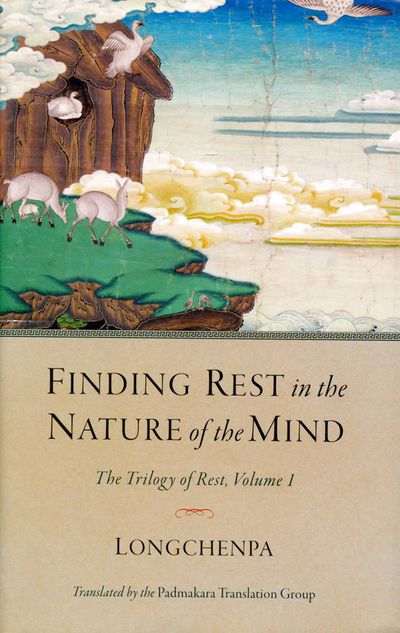- Foreword by Alak Zenkar Rinpochexiii
- Foreword by Jigme Khyentse Rinpochexv
- Translators' Introductionxix
- Part One: Finding Rest in the Nature of the Mind
- Prologue3
- 1. The Freedoms and Advantages of Human Birth So Hard to Find5
- 2. Impermanence11
- 3. The Sufferings of Samsara17
- 4. The Karmic Law of Cause and Effect35
- 5. The Spiritual Master51
- 6. Refuge67
- 7. The Four Unbounded Attitudes75
- 8. Cultivating the Attitude of Mind Oriented toward Enlightenment85
- 9. The Generation and Perfection Stages and Their Union103
- 10. The View That Dwells in Neither of the Two Extremes, the Wisdom whereby the Nature of the Ground Is Realized115
- 11. The Path: Stainless Meditative Concentration127
- 12. The Three Aspects of Meditative Concentration143
- 13. The Great, Spontaneously Present Result151
- Conclusion163
- Part Two: Excerpts from The Great Chariot
- The Mind Is the Root of All Phenomena167
- Mind, Intellect, and Consciousness171
- The Eight Consciousnesses as the Basis of Delusion175
- The Three Natures179
- The Universal Ground191
- The Universal Ground, the Eight Consciousnesses, and the State of Sleep201
- The Tathagatagarbha205
- Refuge243
- The Three Concentrations of the Generation Stage253
- The Simple Practice of the Generation and Perfection Stages257
- The Mind and the Objects That Appear to It261
- The Omniscient Longchenpa Speaks about His Realization265
- Notes269
- Texts Cited in The Great Chariot301
- Bibliography305
- The Padmakara Translation Group Translations into English309
- Index311



